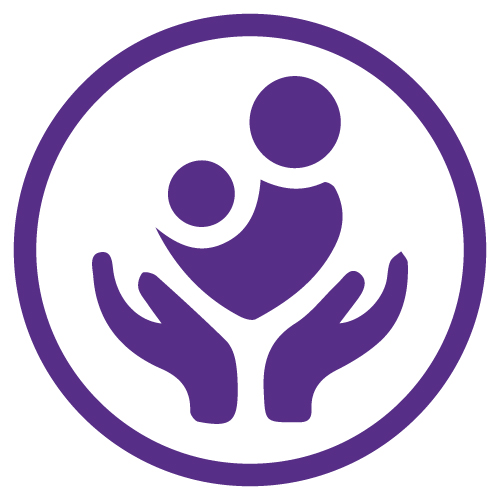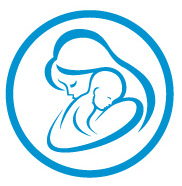 Infant Development & Growth Online Course(s) & Continuing Education
Infant Development & Growth Online Course(s) & Continuing Education
Access the latest clinical skills and research for Infant Development & Growth for Lactation & Breastfeeding professional training. These Infant Development & Growth online courses provide practice-changing skills and valuable perspectives from leading global experts. This Infant Development & Growth education has been accredited for a variety of CEUs / CERPs and can be accessed on-demand, at your own pace.

12 Guiding Principles for Nurturing Human Potential: Effects of Prenatal and Birth Experiences Over the Life Span

Marti Glenn, PhD, is Clinical Director of Quest Institute, offering professional trainings and intensive retreats to help adults heal adverse childhood experiences and trauma. A pioneering psychotherapist and educator, Marti is founding president of Santa Barbara Graduate Institute, known for its graduate degrees in prenatal and perinatal psychology, somatic psychology and clinical psychology. In her clinical work and trainings, Marti emphasizes the integration of the latest research in behavioral epigenetics, Polyvagal Theory and affective neuroscience with attachment, early development, and trauma. She co-produced the broadcast quality documentary, Trauma, Brain and Relationship: Helping Children Heal with Daniel Siegel and Bruce Perry and has appeared in such documentary films as What Babies Want; What Babies Know; Reducing Infant Mortality and Improving the Health of Babies. She is the recent recipient of the Verny Lifetime Achievement Award in Prenatal and Perinatal Psychology and Health. Marti is a frequent speaker at conferences worldwide.
The latest developments in science, medicine and psychology suggest that the most critical formative period for human development is between pre-conception and baby’s first postnatal year. This is the most “sensitive and critical period” in the establishment of life patterns in all domains: physical, mental, emotional, relational, and spiritual. For over three decades, prenatal and perinatal psychology has been studying our earliest development from pre-conception through birth and bonding. The field’s research and clinical experience have established the fact that our earliest experiences form the foundation of our sense of self, our capacity to relate to others and our resiliency in life. This work has also effectively mapped key nodal points of development that need to be met in order to promote healthy life patterns. This presentation will outline 12 principles from this research and clinical practice that will help guide practitioners in understanding and applying the fundamentals in their work.

Healthy Babies: What We Can Learn from Infant Growth Charts

Dr. Gangal is a Pediatrician, Breastfeeding Trainer & Advocate in Mumbai for 30 years. He has been Mother Support-Training Coordinator of BPNI Maharashtra (1995), Co-Coordinator of Mother Support Working Group of WABA (2003) & Lactation Consultant (2009). He was chairman of Global Collaboration Committee of ILCA (2018).
He was trained by Dr. Felicity Savage. He established the first Mother Support Group in India (1995) and played a key role in training 500 Traditional Massage Women, Breast crawl rejuvenation, training Government Health Workers in 7 Indian States with an innovative module with UNICEF and organizing IBLCE exam for the first time in India (2009). He contributed to LLLI publication ‘Hirkani’s Daughters’, facilitated Lactation Counselling in 85 Maternity Facilities, organizing 8 batches of Lactation Education to facilitate about 100 Lactation Consultants, the creation of the Android app ‘Shishuposhan,’ and played a major role in launching the website www.bpnimaharashtra.org.
Dr. Gangal has multiple publications & was a speaker at LLLI conferences in San Francisco and Chicago. He was honored with Dr. N. B. Kumta Award by BPNI Maharashtra, Lifetime Achievement Award by Mumbai Breastfeeding Promotion Committee & WABA Secretariat award. He spoke on Breast Crawl & WHO Growth Charts (2016) at GOLD Conferences.
Infancy is a period of rapid growth & development. Any adversity has a profound impact on physical, mental & psychological outcomes for entire life. Growth Charts are the meter of infant’s Nutrition-Health-Nurturing & reflect any adversity. Hence, tracking infant growth is important.
The World Health Organization (WHO) released new international growth standards in 2006 to monitor growth of children 0-59 months of age. All Health Care Providers should use these charts to complement Infant & Young Child Nutrition (IYCN) Counselling. Every growth chart has a story to tell. I found WHO growth charts to be accurate and extremely useful for knowing past events and use the information to promote optimal growth and development in future. Every contact with the child in general & especially immunization is an opportunity to discuss nutrition & development. The concepts of Severe Acute Malnutrition and Mild Acute Malnutrition (SAM-MAM) need to be understood.
The Infant feeding professionals should also understand science behind WHO Growth Charts and how to use this information for ideal IYCN Counselling. Prematurely born infants need different charts for monitoring growth during infancy & experts need to be aware about the current concepts & opinions of monitoring growth of Premature & Low Birth Weight infants. Impact of individual components of breastmilk on growth is the new science frontier.

View Details / Enroll

Neuroanatomy and Biomechanics: Breastfeeding as a First Movement Milestone

Allyson is a physical therapist, International Board Certified Lactation Consultant and co-owner of Nurture Columbus, in Columbus, Ohio. She completed a Bachelor’s degree in Biology from Ohio University in 1997, and Master of Physical Therapy degree from Northwestern University in 1999. After having a child in 2007, she volunteered as a La Leche League leader. She discovered a love for supporting new parents but a gap in lactation care, which led her to become an IBCLC in 2014. Her clinical approach to identifying and overcoming feeding challenges is unique with physical therapy foundations in posture, movement and reflexive function. Through presentations she endeavors to engage IBCLCs to know more about movement as related to human lactation, and PTs to learn about breastfeeding/chestfeeding as related to human development. As past-president (2019-2021) of the Ohio Lactation Consultant Association, she also advocates for equitable access to and health plan coverage for lactation care.
Topic: Neuroanatomy and Biomechanics: Breastfeeding as a First Movement Milestone - [View Abstract]
Knowledge of neuroanatomy, reflexes, and biomechanics as related to breastfeeding/chestfeeding is essential to IBCLC competency. This presentation will define breastfeeding/chestfeeding in terms of posture, movement, and reflexive function. Examples of neuromuscular dysfunction that impair breastfeeding will be provided. Strategies for treating neuromuscular dysfunction that impedes movement essential to breastfeeding/chestfeeding success will be reviewed along with new research on how participation in infant movement group classes facilitated maternal confidence in breastfeeding/chestfeeding. Presented by an IBCLC who is also a physical therapist, this presentation explores how breastfeeding/chestfeeding should be considered a first movement milestone fostered through interactive tummy time at the most basic and often effective level, and in need of more definition as such across the healthcare continuum. While alerting other healthcare professionals to this definition can help improve support for it, IBCLCs should be the clinical expert in its assessment and treatment as a foundation to collaboratively solving more complex movement impairments that challenge breastfeeding success.

View Details / Enroll

Scent-Sational Connections: The Role of Olfaction in Development

Gretchen Becker Crabb is an Occupational Therapist, Licensed Professional Counselor, and Endorsed Infant Mental Health Therapist. She is also a Certified Lactation Counselor, La Leche League Leader, and Brazleton Newborn Observation (NBO) trainer.
Gretchen’s passion is rooted in fostering lifelong relationships and connection through co-regulation in pregnancy and beyond. Her unique approach to lactation support and therapy is rooted in culturally attuned sensory, somatic, and trauma-informed mental health techniques.
Gretchen owns and operates a private practice in Madison, Wisconsin. For 21 years, she has provided developmental, trauma, feeding, and attachment support for tiny humans and their caregivers in birth to three, preschool, private practice, and peer group settings. Gretchen is an international speaker, reflective supervisor, and infant mental health consultant. In these roles, she offers compassionate, experiential, and reflective holding spaces for professionals. She is a proud United States Air Force spouse and mother of three boys.
Topic: Infant Mental Health: What Does It Look Like in Practice? - [View Abstract]
Topic: Scent-Sational Connections: The Role of Olfaction in Development - [View Abstract]
Topic: Sensory Processing and Breast/Bodyfeeding: Using Co-Regulation to Support the Feeding Relationship - [View Abstract]
Topic: Vestibular Processing: Using the Sixth Sense to Support Lactation and Parent/Infant Relationships - [View Abstract]
Though so obvious, the sense of smell is quite integral to well-being and human connection. As the loss of smell has been highlighted as one of the main symptoms of COVID, it invites a deeper understanding of the functional impacts of olfactory differences in children and caregivers. In this presentation, we will learn about the cultural history and neurological basis of olfaction. We will explore how smell plays a role in feeding, interpersonal relationships, and safety as well as olfactory strategies to promote physical health and co-regulation.
IMPORTANT: In this presentation we will do experiential work, so please have a journal, the following scents and food available:
One Citrus Scent (e.g. lemon, lime, orange)
One Woodsy/Earthy Scent (e.g. leaves, rocks, soil)
One article of clothing worn by someone you are close to (e.g. spouse, child, close friend, parent)
Carrot or other raw vegetable to eat









